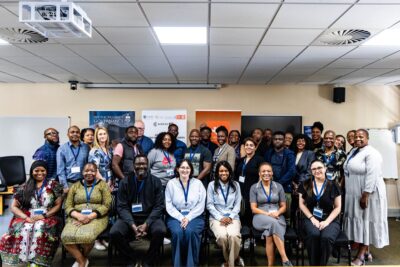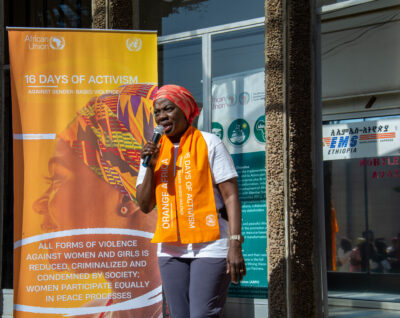Reading The Dawn of Everything, I felt somehow at home. It is not, though, a disciplinary home. Perhaps I should say I felt politically connected to the book’s agenda. This is not a surprise, of course. David Graeber was an activist scholar, well known for his contribution to the Occupy movement and his anarchist positions. I share with him a passionate commitment to a politically engaged scholarship intertwined with the grassroots struggles for social and environmental justice. As Graeber and Wengrow show in their book, a clear political stance does not imply a less rigorous research methodology. On the contrary, embracing a progressive agenda can often lead to better scholarship.
So-called objective research is so entrenched in mainstream discourse that we cannot even detect how biased it is. Graeber and Wengrow offer many examples of the inability of researchers to break free from mainstream assumptions regarding, for instance, the influence of Indigenous thought on Western philosophy or evolutionary theory of stages in human civilizations. I agree that as researchers we should aim to find better questions and not only stronger answers. This is one of the pedagogical tools I always employ; instead of answering questions about the readings, I encourage students to ask questions about what they have read. The urgency of the current socio-ecological crisis calls for immediate answers—this is what we have been told. Nonetheless, it is equally urgent to look for the right questions, those which challenge familiar assumptions while pointing at the roots of the crisis beyond reification (the crisis is CO2 emissions, waste, etc.) and techno-fixes (the solution is geoengineering, incinerators, etc.).
Asking questions—and asking questions about the ways questions are generated and framed— implies the humility that Paulo Freire names as the pillar of any liberatory pedagogical project. In the classroom, as well as in the field or in the archive, the researcher can imagine herself as the depository of all the answers or as the facilitator of further questions. In her thoughtful reflection on critical pedagogy, Catherine E. Walsh reminds us of the centrality of questioning in the Zapatista revolutionary experience; quoting Subcomandante Marcos and Viejo Antonio, she states, “In order to know and walk, one must ask.”
I read The Dawn of Everything while I was reading and rereading both Paulo Freire and bell hooks and, above all, while teaching undergraduate and graduate students. Perhaps this theoretical and practical combination led me to view Dawn within a pedagogical frame of transgression and liberation. Precisely as radical pedagogy, this book seems to be about questions more than answers. Although they build on an immense multidisciplinary literature, Graeber and Wengrow stay faithful to Freire’s call for humility. Their questions are challenging and difficult to answer with the limited sources we have. Nonetheless, these questions must be asked because in the very process of asking them, new possibilities and interpretations arise.
This interplay between asking questions and answering them has also been the pillar of my pedagogy. In this sense, scholars and students are dealing with a similar frame of evaluation; we are continuously evaluated—often ranked—on the basis of how we answer difficult questions in an oral or written format. It is quite rare that we are appreciated for the questions we ask, even less for the ability to stay quiet and listen to others. It is true that, at least in some academic traditions, part of the performance of the perfect scholar/student includes the noble art of asking difficult questions in public, often more to show off than to learn something new. These are neither the questions nor the personal attitudes that radical pedagogy and scholarship nurture. In Graeber and Wengrow’s book, as in my teaching practices, the questions are difficult not because they need to prove how smart the person posing them is. In radical pedagogy and scholarship, questions are difficult when they challenge familiar ways of thinking, the stratification of colonial knowledge, or, in other words, the very person asking them.
A question can be just another way to assert one’s opinion and knowledge, transforming any discussion into a duel. The current intellectual landscape, deeply commodified and informed by a neoliberal agenda, fosters that kind of practice: think, for instance, of the popular idea that in a public discussion someone has to win or the language of scientific excellence that seems to measure academic success—always individual—via the dismissal of others’ work. Questioning in radical pedagogy and scholarship is deeply rooted in what feminist scholars have called positionality. To question is not another god trick—to use Donna Haraway’s expression, it involves first asking questions about ourselves, acknowledging from where we are speaking, questioning, and trying to understand. A colonial mind will produce colonial questions, unless the question is actually challenging the coloniality, patriarchy, racism, speciesism, and ableism entrenched within ourselves.
Graeber and Wengrow explicitly subvert the usual colonial narrative about “others” and “us.” Precisely as radical pedagogy works in practice, Graeber and Wengrow start by challenging the colonial mind because this mindset impedes asking a different set of questions. They argue, for instance, that the modernistic understanding of progress allows us to explore when and under which conditions a given society has reached a more advanced stage but provides little insight into how we evaluate progress or well-being. As with Graeber and Wengrow, I also like to ask the questions that no one is willing to pose. Students, and less sympathetic colleagues, often ask me whether my explicit commitment to social and environmental justice infringes on my ability to deliver good and objective science. It seems to me that The Dawn of Everything proves that a political standpoint does not limit scholarly achievement; on the contrary, such a stance supports a bold, creative quest for what feminist scholar Sandra Harding called stronger objectivity.
I often tell my students about my own experience during the PhD by way of example. The archival sources I was studying all pointed to peasant communities as the main culprits of forest destruction in nineteenth-century Italy, with the consequent condemnation of any form of common property. My political agenda made me skeptical of this narrative, which celebrates privatization as the best option for preserving Italian forests. My PhD supervisor said my ideology would have compromised my scientific objectivity. Instead, it was that political conviction that led me to look for other archives, ultimately producing a better, more balanced account of the history of forests and communities in Italy. Similar to Graeber and Wengrow’s treatment of mainstream narratives about Indigenous societies, I also believe that it is precisely the other way around: dominant biases are so entrenched into mainstream explanations that they do not even allow the possibility to explore other paths. Is it more ideological to imagine a progression from “primitive” stateless societies to the more “advanced” nation state or to question this assumption through empirical evidences? Was my supervisor less ideological than I was in his uncritical faith in private property (as well as in the authority of “The Archive”)?
The corollary of asking transformative questions is learning how to listen to silenced voices. bell hooks argues that listening is crucial in radical pedagogy and feminist practices. Radical listening can be a revolutionary practice. “[I]n the patient act of listening to another tongue,” she writes, “we may subvert that culture of capitalist frenzy and consumption that demands all desire must be satisfied immediately, or we may disrupt that cultural imperialism that suggests one is worthy of being heard only if one speaks in standard English.” I recognize in the work of Graeber and Wengrow my own intellectual project to sabotage what I have called the toxic narratives that obscure injustices and alternative memories. Their entire book is a kind of sabotage, as it recovers the stories excluded from mainstream accounts.
Graeber once said, “I must make a confession: I kind of like to go to meetings.” His passion for participation and his commitment to a more just society made him a seeker rather than a preacher of some immovable truth. That political project also became an intellectual and life project. Many of us have been trained to keep the personal, the scientific, and the political distinct. As Graeber and Wengrow remind us, however, we should ask ourselves whether separating these projects actually makes us better scholars.













